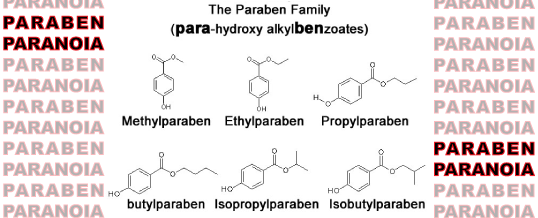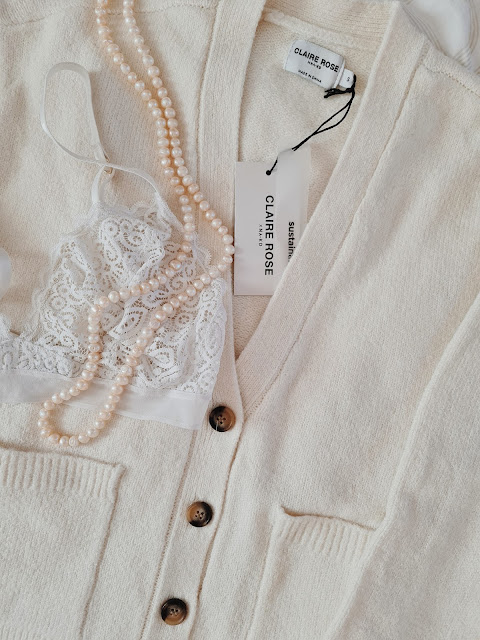PARABENS
I would like to start my first ever blog post with quite a serious topic: Preservatives/ parabens in cosmetics. Are they harmful? Do we have to avoid them? What does scientific research show?
Recently I had quite a heated discussion with my mother about parabens in cosmetic products. As a side note, my mother is a qualified beauty therapist and she also has a BA in therapeutic cosmetology. However, she is against parabens, because these days most clients are very well-aware of these preservatives in beauty products, also clients prefer products that are pareben free.
I, personally, do not see a problem in cosmetics that contains parabens. Neither can I stress this enough, it is my opinion, based on my research, that I am going to showcase in this blog post. I totally respect each and everyone of your, as of my mother’s, choices in this instance :)
So let's start from the basics.
What are parabens?
Parabens are used in skincare, hair care and makeup in order to preserve the products. Otherwise they would become full of mould, fungus and bacteria.
Usually brands that state they are "paraben free" use other preservatives such as formaldehyde slow-releasers: quaternium-15, DMDM hydantoin, imidazolidinyl ureaand diazolidinyl urea or other in order to make products last longer.
More importantly, some brands might get their ingredients already preserved, as they have found a loophole in regulations. As a result, they can avoid listing preservatives in their ingredient lists and claim that the products are "paraben free", "not toxic", even if the source ingredient, that the product is made of, could have been swimming in parabens for months or even years.
Most commonly used parabens. Are they harmful?
"Parabens may come in the form of butylparaben, ethylparaben, isobutylparaben, methylparaben, or propylparaben, and in a misunderstanding of a 2004 research study, they were mistakenly linked to breast cancer when their metabolites (not parabens themselves) were detected in breast cancer tissue samples. But not so fast! Soon after the panic over parabens began, the researcher who conducted the 2004 study (P. Darbre) responded in Journal of Applied Toxicology to the media-drawn connection between parabens and cancer with a clear statement, “No claim was made that the presence of parabens had caused the breast cancers.” In fact, as the considerable global research has exhaustively demonstrated, parabens are broken down, metabolized and excreted harmlessly by the body. That statement refutes the crux of the scare tactics being used to convince you parabens are bad ingredients." - as stated by Paula Begoun here.
These are the facts that I have found and believe in, however I do understand where customer confusion comes from. It is the amount of various information about parabens that is out there and obviously different sources are using that information for different reasons. Therefore there is a perfect environment created to products and brands that want to market their product as paraben free, and that is absolutely fine, if they are transparent enough to tell how do they preserve their products in other ways.
Parabens are naturally occurring substance!
Actually, parabens are formed from p-hydroxy-benzoic acid found in cherries, raspberries, blackberries, soy, carrots and cucumbers. And who ever told you that it is dangerous or bad to eat fruit and veg?! Therefore, the published research and global cosmetic regulatory organisations are stating: parabens, especially in the small amounts used in personal-care products, do not pose a significant health risk. Because parabens are “fully metabolized before they enter the blood stream.”
To summarise, the research introduced above shows that we should not be scared of cosmetic products that contain parabens. However, a lot of brands choose to market their products as "paraben free" or "natural" (when we know that every ingredient on earth is a chemical, but this is for another post), because of the bad media-fuelled reputation on parabens and so called "greenwashing".
Please, before you buy in to these claims from brands, do your own research, make sure that you know what alternatives are used to preserve the products you buy and is it really better then the EU regulated amounts of parabens.
If you are interested in reading more, below are some other scientific research articles related to the topic:
- Scientific Committee on Consumer Safety, Final Opinion on Parabens by European Union: http://ec.europa.eu/health/scientific_committees/consumer_safety/docs/sccs_o_041.pdf
- The American Cancer Society: https://www.cancer.org/cancer/cancer-causes/antiperspirants-and-breast-cancer-risk.html
- Toxicology letters: https://www.ncbi.nlm.nih.gov/pubmed/24177261
- https://www.ncbi.nlm.nih.gov/pubmed/24305662
- Other research: https://ysjournal.com/parabens/






Comments
Post a Comment